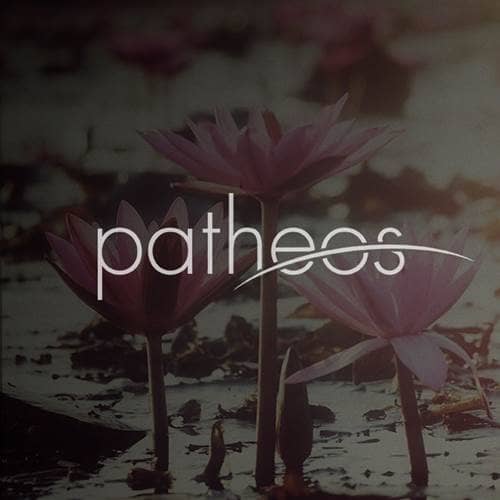- Trending:
- Pope Leo Xiv
- |
- Israel
- |
- Trump
- |
- Social Justice
- |
- Peace
- |
- Love

RELIGION LIBRARY
New Age
Ethics and Community
Leadership
Though the New Age movement lacks central leadership, it does feature a variety of leaders who function similarly to the clergy of other world religions. Often these leaders serve as informal clergy, though in a few cases, groups within the New Age have ordained their own clergy. In countries such as the United States where clergy possess distinct legal rights-e.g., solemnizing marriages-some New Age leaders qualify for these privileges. However, the New Age tradition values individualism, self-reliance, and the notion of the self as the ultimate arbiter of spiritual truths. This results in a tendency among New Age practitioners toward utilizing clergy as teachers and guides rather than authority figures.
The most notable leaders of the New Age are the providers of various New Age services, such as healers, channels, psychics, and astrologers. A divide exists between New Age providers who understand their work as primarily oriented around alternative health care and those who look to their services as offering spiritual guidance. In most cases, New Age practitioners who take the former approach neither seek nor welcome the mantle of clergy. Most advocates of Rolfing, Chinese medicine, naturopathy, and Reiki fit within this category. Such New Age providers seek to separate the theology and sacred traditions behind their healing practices from the alternative heath care that they provide clients. Such persons clearly serve as leaders within the New Age community, often functioning as authorities on specific alternative health treatments, but they are not clergy in any meaningful sense.
By contrast, many other New Age providers embrace the religious nature of their services and understand themselves as religious or spiritual teachers and guides. Such persons, whether they offer alternative health care or other New Age services, often either function as clergy or have legally identified themselves as clergy if that option exists in their jurisdiction of residence. These clergy understand themselves as not merely providers of specific services, but religious guides, teachers, and supporters. For such leaders, the mantle of clergy also serves as a powerful source of legitimacy, a real concern for the practitioners of a new religious tradition such as the New Age. In the United States, shamans, meditation gurus, and psychics have all declared themselves New Age clergy in efforts to present their religious traditions as legitimate alternatives to the Christian mainstream. In addition, many ministers in established metaphysical denominations such as Unity and Religious Science might fairly be described as New Age clergy.
Because most of these clergy provide distinct New Age services, they do not serve cohesive congregations, as one might find in many other religions. Rather, New Age practitioners seek out a clergy member when they require a particular service, following the general pattern of community organization within the New Age. Because New Agers seek a variety of spiritual services from numerous providers, no New Age cleric can claim an exclusive congregation of members. Neither do most New Age practitioners consider a single provider their sole cleric, though exceptions do exist.
No firm line exists between clergy and non-clergy within the New Age. All New Age practitioners seek self-development as part of their spiritual paths, and most New Agers learn a variety of spiritual techniques and approaches. Often, New Age clergy and New Age practitioners more broadly have read the same books, perform the same practices, and seek the same training. The major difference separating clergy from laity in the New Age tradition is that clergy tend to see their New Age practices as their vocation and often their main source of income, whereas non-clergy understand their practice in a more limited way, and generally not their means of economic support. However, such distinctions do not always hold, and in practice the lines between New Age leaders and New Age followers are quite indistinct.
Back to Religion Library
The most notable leaders of the New Age are the providers of various New Age services, such as healers, channels, psychics, and astrologers. A divide exists between New Age providers who understand their work as primarily oriented around alternative health care and those who look to their services as offering spiritual guidance. In most cases, New Age practitioners who take the former approach neither seek nor welcome the mantle of clergy. Most advocates of Rolfing, Chinese medicine, naturopathy, and Reiki fit within this category. Such New Age providers seek to separate the theology and sacred traditions behind their healing practices from the alternative heath care that they provide clients. Such persons clearly serve as leaders within the New Age community, often functioning as authorities on specific alternative health treatments, but they are not clergy in any meaningful sense.
By contrast, many other New Age providers embrace the religious nature of their services and understand themselves as religious or spiritual teachers and guides. Such persons, whether they offer alternative health care or other New Age services, often either function as clergy or have legally identified themselves as clergy if that option exists in their jurisdiction of residence. These clergy understand themselves as not merely providers of specific services, but religious guides, teachers, and supporters. For such leaders, the mantle of clergy also serves as a powerful source of legitimacy, a real concern for the practitioners of a new religious tradition such as the New Age. In the United States, shamans, meditation gurus, and psychics have all declared themselves New Age clergy in efforts to present their religious traditions as legitimate alternatives to the Christian mainstream. In addition, many ministers in established metaphysical denominations such as Unity and Religious Science might fairly be described as New Age clergy.
Because most of these clergy provide distinct New Age services, they do not serve cohesive congregations, as one might find in many other religions. Rather, New Age practitioners seek out a clergy member when they require a particular service, following the general pattern of community organization within the New Age. Because New Agers seek a variety of spiritual services from numerous providers, no New Age cleric can claim an exclusive congregation of members. Neither do most New Age practitioners consider a single provider their sole cleric, though exceptions do exist.
No firm line exists between clergy and non-clergy within the New Age. All New Age practitioners seek self-development as part of their spiritual paths, and most New Agers learn a variety of spiritual techniques and approaches. Often, New Age clergy and New Age practitioners more broadly have read the same books, perform the same practices, and seek the same training. The major difference separating clergy from laity in the New Age tradition is that clergy tend to see their New Age practices as their vocation and often their main source of income, whereas non-clergy understand their practice in a more limited way, and generally not their means of economic support. However, such distinctions do not always hold, and in practice the lines between New Age leaders and New Age followers are quite indistinct.
Study Questions:
1. How are clergy viewed within the New Age movement? Why?
2. How are New Age leaders divided? What does each category require of the individual?
3. Describe the role of the “congregation” within the New Age movement.
Editor's picks See all columnists










